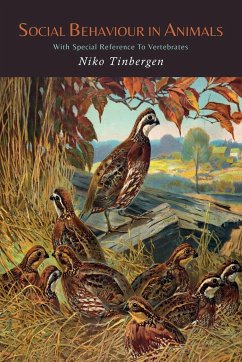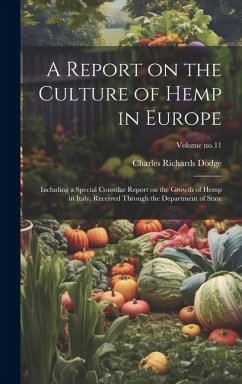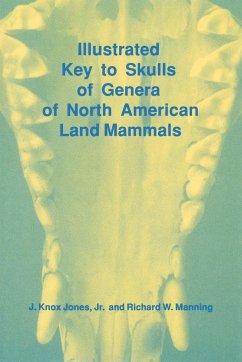
Social Behaviour in Animals with Special Reference to Vertebrates
Versandkostenfrei!
Versandfertig in 1-2 Wochen
18,99 €
inkl. MwSt.

PAYBACK Punkte
9 °P sammeln!
2014 Reprint of 1953 New York Edition. Full facsimile of the original edition, not reproduced with Optical Recognition Software. This book aims to be a presentation of a biological approach to the phenomena of social behavior in animals. This approach is characterized by the need for careful observation of the variety of social phenomena occurring in nature; by emphasis on a balanced study of the three main biological problems - function, causation, evolution; by emphasis on an appropriate sequence of description, qualitative analysis, quantitative analysis; and finally by emphasis on the need...
2014 Reprint of 1953 New York Edition. Full facsimile of the original edition, not reproduced with Optical Recognition Software. This book aims to be a presentation of a biological approach to the phenomena of social behavior in animals. This approach is characterized by the need for careful observation of the variety of social phenomena occurring in nature; by emphasis on a balanced study of the three main biological problems - function, causation, evolution; by emphasis on an appropriate sequence of description, qualitative analysis, quantitative analysis; and finally by emphasis on the need for continuous re-synthesis. The book covers a range of aspects of animal behavior, including mating, fighting, family and group life, and social organizations, as well as some unrelated analytical evidence, acquired under such special laboratory conditions it is at present impossible to say how it is related to the normal life of the species concerned. The significance of intraspecific fighting, the causation of threat and courtship behavior, the functions of releasers and other problems are discussed in detail and an attempt has been made to give them their proper place in the complex system of problems. Tinbergen was a Dutch ethologist and ornithologist who shared the 1973 Nobel Prize in Physiology or Medicine with Karl von Frisch and Konrad Lorenz for their discoveries concerning organization and elicitation of individual and social behavior patterns in animals.












